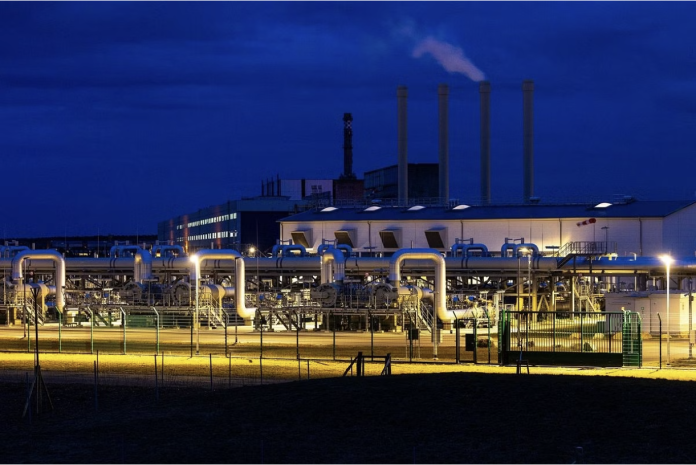India is formulating a plan to establish a strategic natural gas reserve, capable of storing up to 4 billion cubic metres (BCM) of imported gas.
This reserve would serve as a contingency measure during supply emergencies and contribute to stabilising the domestic market, writes Economic Times.
Following the recent approval from Union Petroleum Minister Hardeep Singh Puri for the gas reserve concept, the Ministry of Petroleum and Natural Gas has tasked Oil and Natural Gas Corp (ONGC), Oil India, and GAIL to jointly prepare a detailed feasibility report.
The feasibility report, expected to be submitted within three months, marks a renewed effort by India to enhance its energy security, prompted by the global gas market disruptions that impacted the country’s gas imports and industrial production last year.
The targeted storage capacity of 3-4 BCM is estimated to cost between $1-2 billion.
India, aiming to raise the share of gas in its energy mix from 6 per cent to 15 per cent by 2030, recognises the potential of a sizable storage facility, a well-established pipeline network, and a mature gas exchange to foster the growth of the domestic gas market.
Moreover, such storage infrastructure could position India as a regional hub, supplying neighbouring countries like Sri Lanka, Bangladesh, and Myanmar in the future.
The feasibility report will encompass cost projections, potential locations, construction timelines, and business and financial models for the reserves.
Depleted wells of ONGC and Oil India could be used for the storage, the Economic Times report said, adding that ONGC has already identified two such wells in Gujarat, while Oil India is exploring options in the North East.
The feasibility report will also evaluate the most optimal storage model, addressing whether a strategic, commercial, or hybrid approach is best suited for the country.
Additionally, it will outline the necessary government support and commercial models to ensure financial viability.
India already has strategic crude oil reserves with a capacity to hold 5.33 million tonnes of oil in underground caverns, fit to meet around 9.5 days of the country’s oil demand.
The capacity is being expanded by another 6.5 million tonnes in the second phase of the project.
Notably, despite the burgeoning projections for increased gas consumption in the coming years — the country consumed 60 BCM of natural gas last fiscal year — the nation currently lacks strategic storage facilities for natural gas.
With India aspiring to transition into a gas-based economy, a strategic storage solution becomes imperative, especially considering that the country imports approximately half of its gas.
This initiative aligns with the practices of major gas-consuming economies like Europe and China, which rely on extensive artificial gas storage to manage domestic demand effectively.


